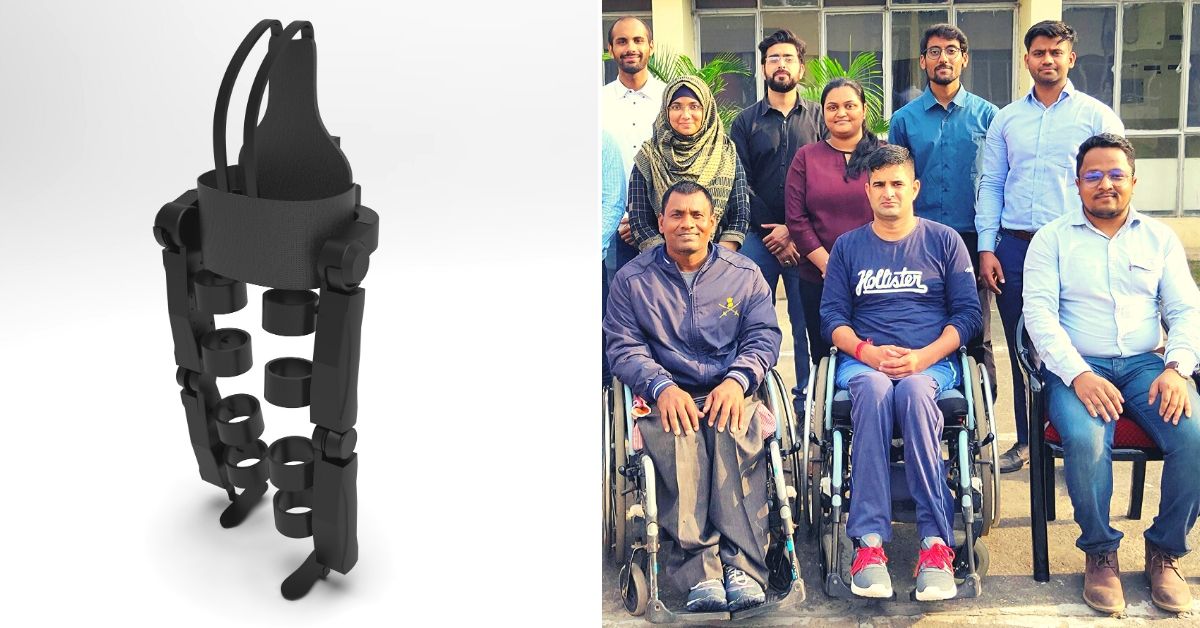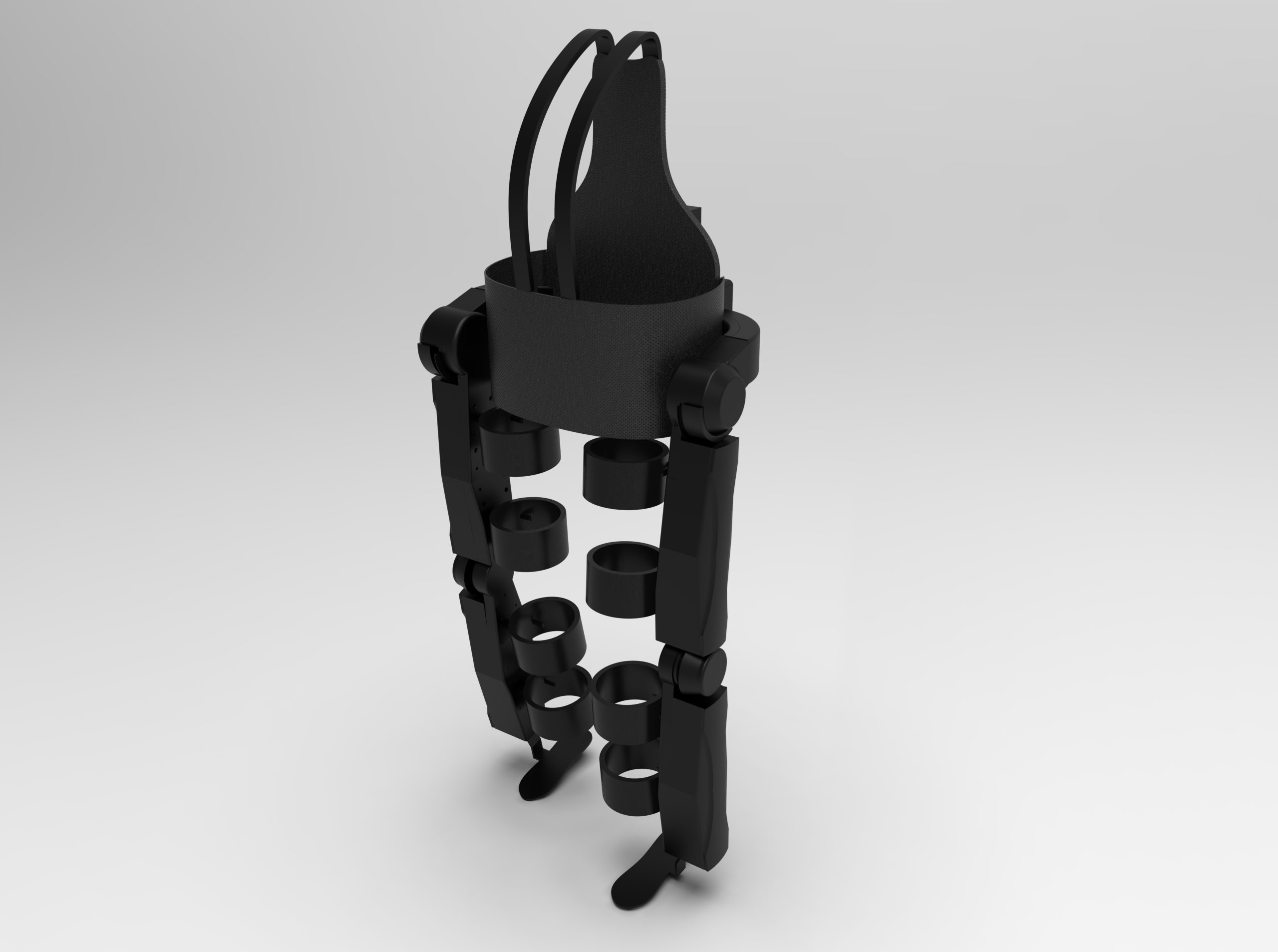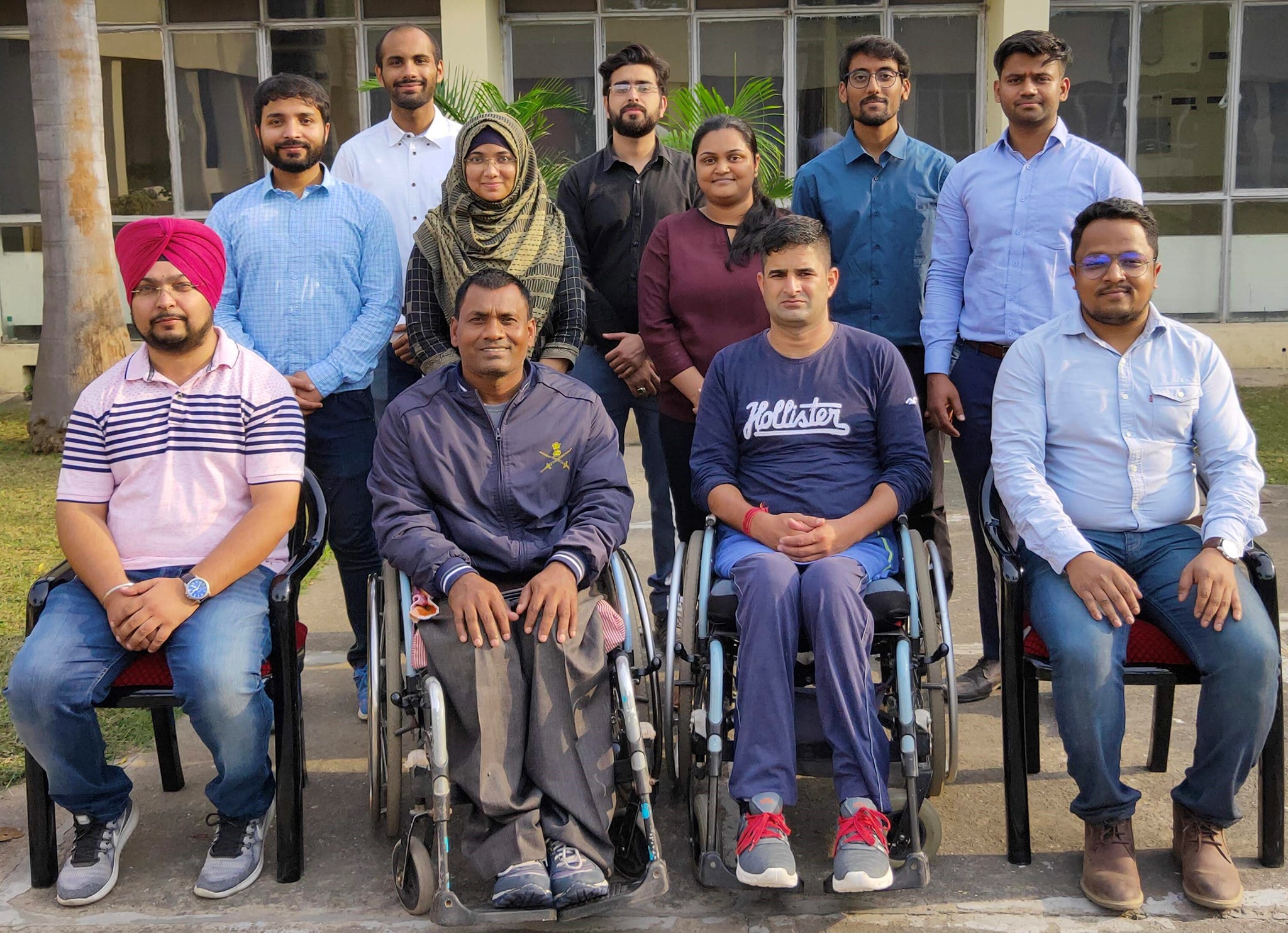Delhi Startup’s AI-Powered Exoskeleton Can Help The Specially-Abled Walk Again
When John Ignatius Kujur found out that his senior from college was unable to find a job because of his disability, he was inspired to innovate.

When John Ignatius Kujur was working on his final year engineering project in 2013, he found out that his senior from college was unable to find a job because of his locomotor disability.
Displeased, he began researching the latest technological solutions that could assist specially-abled persons, alongside working on his project. Despite finding work in the education sector, he maintained his research into technological solutions that would one day ensure people like his friend wouldn’t have to miss out on job opportunities because of their disabilities.
In 2015, he quit his job, and research work took precedence. After three further years of intense research and development, he founded GenElek Technologies, in March 2018. The New Delhi-based startup develops Exoskeletons: an externally worn robotic support system that enhances a human’s limbic capabilities.
The Better India’s “BETTER TOGETHER” initiative has brought together civil service officers from across the country as they help migrant labourers, daily wage earners, frontline workers, and all those who need our help most in these troubled times. You can join us and support them in this fight against COVID-19.
Unable to view the above button? Click here
Funded and supported by the Indian government’s Ministry of Electronics and Information Technology, the startup’s technology will soon help people suffering from paralysis, stroke, spinal cord injury (SCI) and other neurological conditions to face their daily obstacles with confidence and ease.
Approved for manufacturing by the Central Drugs Standard Control Organisation (CDSCO), the national regulatory body for medical devices, the Exoskeleton was undergoing a rigorous testing process in-house with paraplegic patients, before the COVID-19 related lockdown came into force.
Initially, the plan was to commence commercial production at the beginning of July 2020, with deliveries slated for the third quarter of the current financial year. But due to the lockdown, their plans have been postponed, and are waiting for the situation to return to normal.

What is the Exoskeleton?
“The Exoskeleton is a light-weight, affordable, and wearable robotics device that will assist specially-abled people to walk again. It essentially acts as a mobility device for the wearer and assists in recovering the gait pattern of the person naturally, besides assisting them in the rehabilitation process. It will also help them become self-reliant, independent, and possibly increase their chances at obtaining employment. The device we are developing has a long battery life and fast response speed. Their system will be designed to read data from multiple sensors and deliver it to the physicians who can then analyze their patient’s progress,” claims Kujur.
One key feature of the system is the array of sensors used to track a patient’s gait. These sensors provide essential feedback to the Exoskeleton about how the person walks. This data is processed by their AI algorithm, which takes it and adjusts the functioning of the Exoskeleton. Thus, the device adjusts to the needs of each individual and is designed to read data from multiple sensors. This data is subsequently delivered to physicians to analyze their patient’s progress.
“The more you use it, the better it gets at assisting you and determining the best adjustments to improve rehabilitation. Another essential technology is the use of cloud-based solutions. The data collected and interpreted by the AI is sent to the cloud where it is processed, and a proper real-time progress report of the patient is generated for doctors who can then adjust their treatment,” says Vivek Pandey, the co-founder of GenElek Technologies.
While the AI adjusts the Exoskeleton to improve efficiency, the battery management allows for longer run-time per session. Secondly, automatic adjustments to its functioning by the AI enhance the effectiveness of treatment cutting down on rehabilitation time.
Lastly, real-time monitoring of the patient’s progress makes it easier for the doctors to make decisions regarding treatment, allowing for improved quality of treatment. A core objective of the device was the improvement in the patient’s rehabilitation. The AI works through feedback from the sensor array and adjusts the treatment accordingly.
“The price of the Exoskeleton has been set at a range that is close to 40% lower than similar existing solutions available in the market. Additionally, a further discount of close to 30% is being offered to initial customers. They can visit our website https://www.genelektech.com for pre-bookings,” says Kujur.

Beyond the Exoskeleton
GenElek Technologies has tied up with Paraplegic Rehabilitation Center, Mohali, to deliver the Exoskeleton technology at their institution. It is also looking to collaborate with medical institutions that work for rehabilitation centers and hospitals. They are also in talks with BLK Hospital and Dr. Ram Manohar Lohia Hospital to implement this technology in their premises for rehabilitation purposes.
Meanwhile, the startup will assist the only team from India selected for the Cybathlon 2020 competition slated for the first week of September in Zurich. Ajit Kumar Shukla and Arun Pal, both former Indian Army soldiers who are paraplegic, will compete with 17 other international teams in the ‘Powered Exoskeleton Race.’ Cybathlon is a renowned international competition where specially-abled people compete against each other to perform daily tasks using advanced assistive technologies.
“We have launched a digital crowdfunding campaign for the team named #TothewarVeterans,’ to raise Rs 45 lakh for their participation in the Cybathlon. The company will provide full-fledged training to them at the Paraplegic Rehabilitation Centre (PRC), Mohali, in a robotic suit so that they can compete with 17 other international teams and win the race. You can donate here,” says Pandey.
https://www.youtube.com/watch?v=2bFMzRv69dA&feature=emb_title
The Road Ahead
Talking about new services and concepts, Kujur explains, “The company is looking towards the development of a higher-end medical Exoskeleton that would aid in rehabilitation with an emphasis on medical data gathering, analysis, and reporting.” Further, the company intends to provide similar equipment and services for rehabilitation and treatment of other motor and sensory functions of the body.
“Therefore, collaborations with leading hospitals with physical medicine, rehabilitation facilities and NGOs are being actively pursued. After having discussions with many doctors, specially-abled persons, and medical institutions, we have come up with added intangible benefits for the persons willing to purchase the Exoskeleton such as access to dedicated medical experts, occupational therapy and counselling. This will help them to become employable along with facilitating their therapy,” says Pandey. In addition to the above, the company is continuously “working on reducing the prices of its existing products” to provide greater access to people who need it.
Despite the current state of the economy, the company hopes to cross Rs 70 million in revenues over the next two years and in the process, expand its operations globally to help specially-abled people elsewhere.

Things have come to a halt, thanks to the COVID-19 epidemic. But once the pandemic subsides, GenElek Technologies hopes to be on its way towards introducing a product that genuinely alters the lives of specially-abled people.
Also Read: Sightless Since 7, Padma Shri Awardee Has Given 200 Blind Girls A Bright Future
(Edited by Gayatri Mishra)
Like this story? Or have something to share? Write to us: [email protected], or connect with us on Facebook and Twitter.
If you found our stories insightful, informative, or even just enjoyable, we invite you to consider making a voluntary payment to support the work we do at The Better India. Your contribution helps us continue producing quality content that educates, inspires, and drives positive change.
Choose one of the payment options below for your contribution-
By paying for the stories you value, you directly contribute to sustaining our efforts focused on making a difference in the world. Together, let’s ensure that impactful stories continue to be told and shared, enriching lives and communities alike.
Thank you for your support. Here are some frequently asked questions you might find helpful to know why you are contributing?


This story made me
- 97
- 121
- 89
- 167











